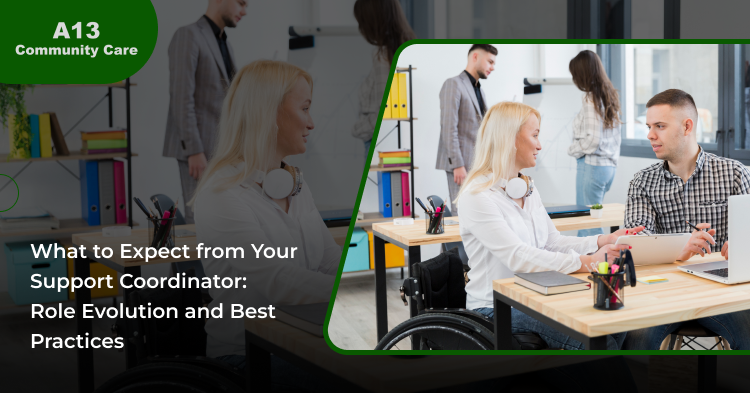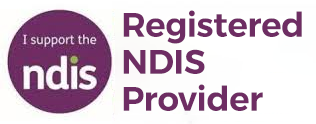
What to Expect from Your Support Coordinator: Role Evolution and Best Practices
Like all areas, the world of disability support is changing. And the National Disability Benefit is evolving in line with this. If you are an NDIS participant or you support someone, it is important to understand what you can expect from your support coordinator. Reforms introduced after 2024 set new standards for how support coordinators work with participants, their families, and service providers.
This guide will tell you how the role of support coordinators is evolving, what new tasks they're performing, and how they can support you better than ever.
If you are just starting with NDIS or you are already familiar with it, knowing the changes in support coordination will help you utilize your plan to its fullest.
The Changing Role of Support Coordinators
NDIS Support coordinators are not just the service organizers anymore, but are becoming an active partner along the way whose main goal is to empower the client through skill development and increase independence. Whereas previous coordinators mostly handled connecting you with suppliers and organizing logistics, they now play a bigger role in teaching you to manage your own support independently and confidently.
The introduction of roles such as NDIS Navigator also means there is greater collaboration between different support staff, with the aim of providing seamless support tailored to your specific needs.
This change helps address the complexities of linking disability services to mainstream and community supports, particularly for participants with multiple or high-level support needs.
Recent data shows a significant increase in participants requiring coordinated care for complex needs, making this evolved approach necessary.
Coordinators are expected to work closely with you, your family, and a broader team of services to make sure everyone is working toward your individual goals.
Key Changes and New Responsibilities of NDIS Support Coordinators
A major update following the 2024 reforms is the integration of the NDIS navigator role. Navigators help clients understand and navigate the NDIS framework and work closely with support coordinators to improve their access to services.
Support coordinators will focus more on helping you build independence through self-management. They will guide you on how to best use your funding, develop contingency plans, and adapt to changes in your support needs or life circumstances.
They should remain updated with the new planning frameworks and evaluation processes recently introduced. This means understanding how plan reviews work, anticipating changes, and producing clear reports for the National Disability Insurance Agency (NDIA).
In addition, support coordinators are expected to manage coordination for participants with complex or extensive needs, including working with health, education, and community services. Technology will play a key role, using data tools to track progress and outcomes to ensure your support stays on track.
Challenges such as a shortage of manpower, a lack of funds, and ensuring equitable access in remote areas will test the adaptability of the coordinators. They must be prepared to remain resourceful with regular learning and training.
Best Practices for Support Coordinators
To provide excellent support, coordinators must be committed to continuous learning and professional development. They build a trusted network of mainstream services and community organizations so they can offer you a wide range of options beyond just registered NDIS providers.
Communication is key: Coordinators should explain policies and options in simple, natural language, listen patiently to your preferences, and make good use of digital tools to stay connected and responsive.
Ethical transparency is essential: Coordinators should help you make informed decisions without exerting pressure or making choices on your behalf. This ensures that you remain in control of your support.
Skill development for self-reliance: They also support you by training your skills in self-advocacy, problem-solving, and negotiation with suppliers. By helping you build this capacity, their goal is to gradually reduce your reliance on coordination support and ensure that your plans evolve with your goals.
Support Coordinators Will Face Challenges
Switching roles will not come with a seamless transition process; coordinators will face some challenges, such as:
Limited funding and a lack of manpower mean a high caseload, which will require effective prioritization and creativity.
Dealing with complex cases with multiple vendors can be difficult, especially when urgent issues arise.
Keeping up with rapidly changing guidelines and regulatory requirements requires continuing education.
For participants in rural or remote areas, access to services and effective coordination can be difficult, creating unique difficulties.
Additionally, with more data being collected digitally, maintaining privacy and cybersecurity becomes a priority.
Future Prospects and Expectations for the Participants
Looking ahead, you can expect coordinators to use more technology, such as AI-powered scheduling tools and communication platforms, although their role remains deeply personal and human-centered.
Future reforms are likely to place greater emphasis not only on service delivery but also on choice, empowerment, and independence for participants.
You can prepare by staying informed about your plan and the new NDIS changes, developing skills in managing budgets and providers, and being prepared to ask your coordinator questions about how they will support your goals.
Choosing a coordinator who is familiar with these evolving practices and demonstrates a commitment to participant-centered support can make all the difference.
Final Thoughts
The role and responsibilities of support coordinators for the NDIS will progressively change towards being more supportive, empowering, and skill-building for the participants. Along with reforms and innovations that are shaping the landscape, they will play a vital role in guiding you through a complex system while prioritizing your independence and goals. Hence, it is important to stay updated and to select the right coordinator who applies best practices to ensure that you get the most out of your NDIS plan Management in 2025 and beyond.
Frequently Asked Questions (FAQs)
1. What level of support coordination is available under the NDIS?
The NDIS offers three levels: Support Connection (basic support to understand and use your plan), Coordination of Support (ongoing support to manage multiple providers), and Specialist Support Coordination (for complex or high-risk situations).
2. Am I allowed to switch my support coordinator if I am displeased?
Absolutely, participants are entitled to switch their support coordinator at any time if they believe that the present one does not cater to their needs or preferences.
3. How can a support coordinator help me become more independent?
They teach you how to manage your support services and budget, advocate for your choices, and ultimately help you develop the skills to handle plan management with less outside help.
4. Will technology replace the role of support coordinators?
No. While technology supports better planning and communication, the human support, understanding, and advocacy of the coordinator remain critical.
5. How do support coordinators help with NDIS plan reviews?
They monitor your progress through the plan, prepare reports for the NDIA, and help you gather evidence and feedback to support adjustments during the assessment.

